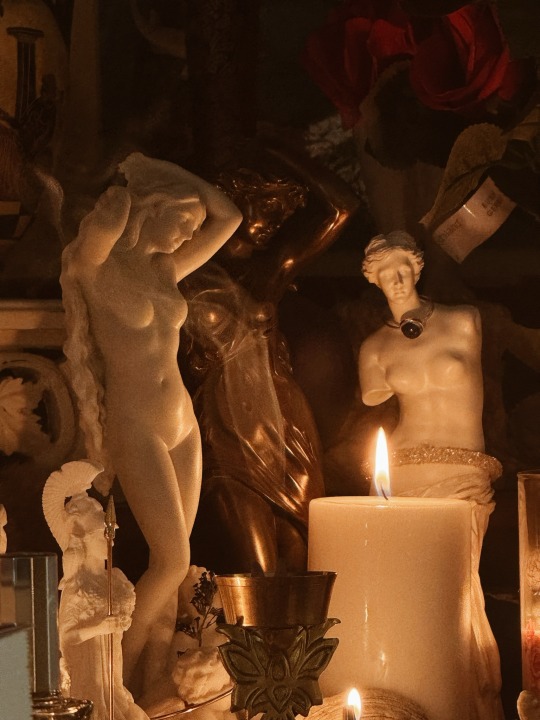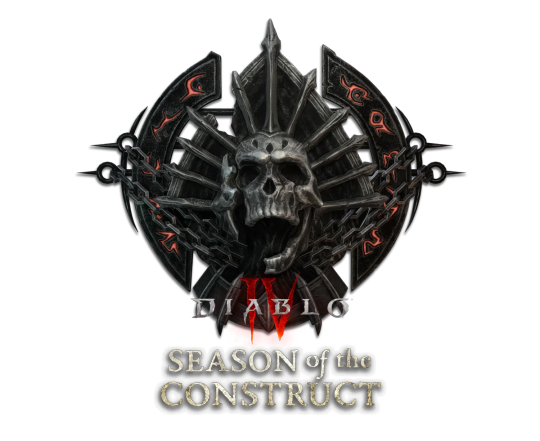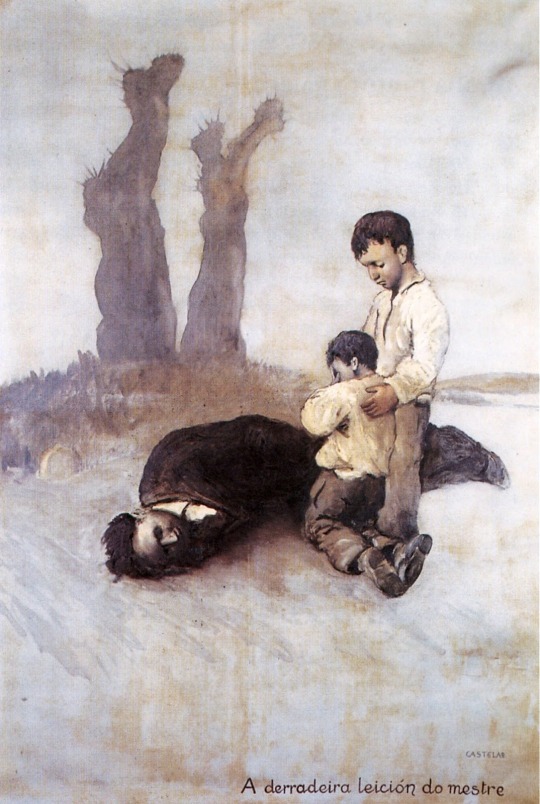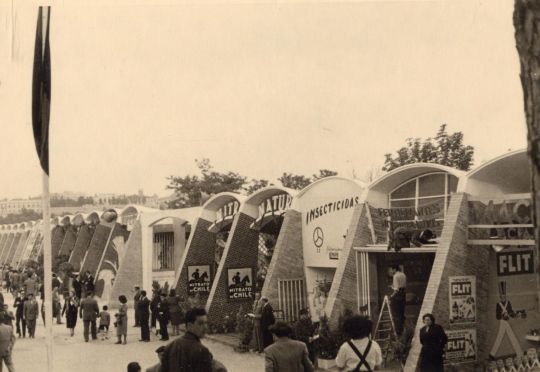#Bóvedas
Explore tagged Tumblr posts
Text
See an altar post an altar (ancestral)

🕊️🕯️Altar Photos🕯️🕊️

My altar is mainly for Ares and Aphrodite, but it has candles for Phobos, Deimos, Himeros, Eros, and Harmonia—along with Zeus and Athene (you can see them in the center!)




Below is my altar from four years ago, I still miss it sometimes! I might make a similar small one in a different corner of my house. Very cute little setup.

234 notes
·
View notes
Text
¡El Telar Despierta! Diablo® IV Lanza la Épica Temporada del Constructo
Descubre los secretos de la antigua tecnología y enfréntate a Malphas en la Temporada del Constructo de Diablo® IV. ¡Prepárate para sumergirte en la magia y la intriga de la Temporada del Constructo de Diablo® IV! Una vez más, el universo de Diablo nos sorprende con la revelación de El Telar, una tecnología ancestral creada por Zoltun Kall y Ayuzhan de Caldeum. Sin embargo, la oscura…

View On WordPress
#Bóvedas#Compañero Senescal#Desafíos semanales#Diablo IV#El Telar#mejoras de calidad de vida#Santuario#Temporada del Constructo#Videojuegos
0 notes
Text

Secretos del Cosmos N°2 | Pt 10
Título Original: Man Probes The Universe
Biblioteca Básica Salvat
#space#photography#books#astronomy#solar system#planet#obra#map#galaxy#Alianza#Alianza editorial#Salvat#Salvat Editores#Sun#Earth#1969#via lactea#sky#estrellas#bóveda celeste#science
25 notes
·
View notes
Text

bóveda que huele a sal y noche | victor m. alonso
#photographers on tumblr#poets on tumblr#víctor m. alonso#vimalsu999#isla negra#bóveda que huele a sal y noche#poema de amor#amor#poema de amor a mi manera
252 notes
·
View notes
Text
Si pudiera elegir de que manera ser parte de la creación, sería la bóveda celeste de tus deseos, tan cerca de la realidad y tan fugaces.
julsenbastian
#febrero2024#julsenbastian#tintaycometas#escritos#poemas#letras#frases#bóveda celeste#deseos#realidad#notas#tinta y cometas#citas#versos#poesía#amor
35 notes
·
View notes
Text
Back to clearing out drafts of things I'm not going to finish: this scrap is from the third of August, 2013:
-
"I think it would be for the best, my lord," Faramir said, clearly picking his words with care, "if I remain in Rohan when the rest of our people return home."
Aragorn considered him. Nothing about the other man's demeanour spoke of the besotted lover; indeed he looked very much as Aragorn imagined he had when he spoke of Gandalf to Ecthelion. His air was entirely that of a councillor about to offer disagreeable advice.
Suppressing a sigh, Aragorn said, "I am not sure I understand you."
It was not the first time. Faramir was often clear and precise, but not always, and seemed to expect Aragorn in particular to wring meaning out of even cryptic statements.
Apart from this quirk, Aragorn understood him quite well. In fact, he'd formed a reasonable estimation of Faramir's character before he set foot in Minas Tirith, thanks to Imrahil.
As they'd made their way through the stinking battlefield, the city rising pristine before them, Aragorn had asked the Prince if he knew where the most seriously wounded might be found.
"They will be in the Houses of Healing," said Imrahil slowly. "My sister-son—"
Aragorn remembered Boromir speaking of a younger brother, his affection and concern unmistakable. And that was the brother to whom the summons to Rivendell had been sent first. He would now be Denethor's heir, playing an even greater part in Gondor's affairs than in Boromir's descriptions. There must be a reason for all this—it did not seem likely that he was another Boromir. Perhaps he favoured Denethor more than his brother had, or perhaps Finduilas and Imrahil. Aragorn could only hope for the latter.
Belatedly, he realized that Imrahil had not simply paused mid-sentence but stopped altogether, his smooth voice breaking.
"The Lord Faramir, I believe?" Aragorn immediately saw the pain in Imrahil's stiff nod. "He is in the Houses? Has he been injured?"
"Faramir led the defence of Osgiliath and the Rammas Echor against the Witch-king of Angmar," said Imrahil.
Angmar. "What happened?"
The Prince hesitated. "He has great strength of mind, and chanced to inherit abilities from both Denethor's house and mine. Boromir was the mightier warrior, and the most admired man in Gondor, but Faramir had—has—a way with everyone he met." He shook his head, a ghost of a smile at his mouth. "To see him is to love him, and not only for his kin. Men and beasts alike will follow him anywhere." The lines of Imrahil's expression, briefly softened, drew tight and anxious once more. "Forgive me. I digress."
"With reason, I think," said Aragorn, hardly one to condemn a grieving uncle, even if he had not been the Prince of Dol Amroth, and even if he had praised his sister-son without purpose.
Imrahil nodded, exhaling on a sigh. "His men followed him that day into the Shadow. For a time, he was able to hold his soldiers and their mounts steady, and he judged it necessary to remain with them to the end. But he was weary before he ever rode out, and it had been over a day, with little rest, when we last spoke."
"It would have been a great enough task for a man well-rested," said Aragorn, frowning. A dim picture was beginning to coalesce in his mind, but something was wrong with it. Many things were wrong with it. As they headed towards the city, he said, "It would have been great enough for an Elf-lord, against such an enemy. Why did he not rest beforehand?"
He was familiar with that kind of exertion, though that particular form was not one he favoured. He looked ahead at Minas Tirith, thinking of how many must be ill or dying. Soon he would be called upon to cast as wide a net as he could, pitting his will against the Black Breath. But it was a battle he could and would win.
"Faramir had slept a little," said Imrahil. "But five Nazgûl had pursued him and three or four others from Osgiliath; I did not see it myself, but I was told that he rode back when his companions were unhorsed, and one of the foul beasts actually stooped down on him. It was Mithrandir who saved him then."
Aragorn almost halted, more startled at this than anything else.
"This sister-son of yours confronted five Nazgûl?"
He could easily imagine Boromir doing it. Even the Denethor of Thorongil's day—but still. One was quite bad enough.
Imrahil looked at him. "Would you have done any different, lord?"
"No," said Aragorn. "Yet he was lucky to survive that alone, never mind the battle itself."
"He always has been. His men believe his life is charmed, by the Valar or—" He shrugged. "If so, his good fortune ran out in the end. He fell in the retreat across the Pelennor, when he was pierced by a Southron arrow. I carried him myself to the Houses of Healing. There he has lain in a fever ever since. I cannot think it only the wound."
"If he was contending with Ringwraiths the day before," Aragorn said, "then a stray arrow would be the least of his troubles. Yet it would leave him far more vulnerable to the Black Breath of the Nazgûl, all the more with his will spent." He looked sharply at Imrahil. "That would be enough. But there is more, I think?"
Imrahil sighed. But then he told him the whole story, as far as he knew it: told him of the always troubled relationship between Denethor and his gentle, willful younger son, turned colder with Boromir's absence and death, of Faramir's return from Osgiliath and Denethor's displeasure that Faramir had permitted strangers to pass freely through Ithilien.
Aragorn almost caught his breath. "Strangers? Of what kind?"
"Halflings, I hear," said Imrahil. "They had some foul weapon of Isildur's—forgive me—which Faramir sent away with them. Denethor agreed it should not be used, but he was furious that Faramir had allowed it to pass into the Dark Land. They quarrelled over that, and then again over the defense of the Rammas Echor. Faramir did not go of his own will but at the command of the Steward.
"I see," said Aragorn. So this man had faced the Ring as well.
#anghraine babbles#anghraine's fic#legendarium blogging#i always figured that aragorn knew about faramir's latest conflict with denethor from imrahil#so this was partly an attempt to write that#i was also going to wind back around into faramir staying in rohan for political as well as personal reasons#fic talk#imrahil#faramir#aragorn#de las bóvedas#long post
63 notes
·
View notes
Text

Castelao: A derradeira lección do mestre
14 notes
·
View notes
Text

Perfección gótica. Bóveda del Monasterio de los Jerónimos de Santa María de Belem, en Portugal. El proyecto del Monasterio de los Jerónimos fue encargado por el rey Manuel I para conmemorar el regreso de la India de Vasco de Gama. Diseñado en estilo gótico manuelino por el arquitecto Juan de Castillo, fue fundado en 1501. Fotografía: David Stephenson
Gothic perfection. Vault of the Hieronymites Monastery of Santa Maria de Belem, in Portugal. The Jeronimos Monastery project was commissioned by King Manuel I to commemorate the return of Vasco da Gama from India. Designed in the Manueline Gothic style by architect Juan de Castillo, it was founded in 1501. Photograph: David Stephenson
2 notes
·
View notes
Text
Una estrella fugaz cruzó lo bóveda celeste, y él la vio desvanecerse. ¿No se suponía que traían buena suerte? Ella lo sabría, pero se había ido.
Mujeres Audaces (Jennifer Crusie)
#frases en español#frases de libros#frases#español#libros#Mujeres Audaces (Jennifer Crusie)#citas#una#estrella#fugaz#cruzó#la#bóveda#celeste#y#él#vio#desvanecerse#no#se#suponía#que#traían#buena#suerte#ella#lo#sabría#pero#había
6 notes
·
View notes
Text

Tenue - Arcos, bóvedas, pórticos (2024)
0 notes
Text
¿Cómo interpretar la relación tierra- cielo y la imagen de la divinidad en unas bóvedas esféricas que utiliza el Islam desde momentos muy iniciales y con gran riqueza en el mundo iraní y norte de África, al igual que usaban los mudéjares españoles siglos atrás.?
0 notes
Text
Desata el Caos con la Temporada del Constructo en Diablo® IV
El legado tenebroso de Zoltun Kall cobra vida en una nueva temporada llena de misterios y peligros. El 23 de enero a las 10:00 h (hora del Pacífico), el mal se desatará en Santuario con la Temporada del Constructo de Diablo® IV. Maquinaciones diabólicas, un telar ancestral y un nuevo aliado robótico, el Senescal, aguardan a los valientes aventureros. Adéntrate en el Telar de Zoltun Kall y…

View On WordPress
#actualizaciones#Bóvedas#Constructos#Diablo IV#Encrucijada#Mareas Infernales#Santuario#Senescal#Temporada del Constructo#Zoltun Kall
0 notes
Text
El futuro de la seguridad - Experiencia de avanzada en las bóvedas robotizadas
En un mundo donde la seguridad y la comodidad son prioridades, Hausler -, explica su última innovación: bóvedas robotizadas Gunnebo. Esta tecnología de vanguardia, fabricada en Alemania, redefine la experiencia del consumidor al ofrecer discreción, eficiencia y rapidez en un servicio tradicionalmente asociado con la seguridad, comodidad y la protección de valores (Fuente Hausler Latam). Las…
0 notes
Text

Feria del campo Madrid, Asís Cabrero
0 notes
Text

Desde Blog Arte Plus: Refugio multipropósito con techo abovedado, Tarang.
[ Acceder ]
#arquitectura#architecture#the grid architects#So 100 Hands Foundation For Building Artisans#Tarang#Ahmedabad#Bóveda#diseño curvo#uso multiple#edificio#construcción#mampostería
0 notes
Text
I'm sleepy and bored, so I went back to thinning out my drafts folder. The furthest back is a longer scrap of fic, which apparently I was working on back on July 22nd, 2013:
-
When Éomer was a small boy and Éowyn still toddling about Aldburg, a stranger came through the Eastfold. At first, Éomer thought him a woman, for his long tunic could almost have been a gown, and then thought that he must be one of the Men of Gondor, for he was taller than Éomund and his unbraided hair was black and thick and very long. But it was not so. He was a merchant out of Harad.
To Éomer's bewilderment, his mother and father welcomed the merchant as warmly as if he had been the finest Rider in the Mark, and offered him provisions for the next leg of his journey. It was Éomund who explained to Éomer that the Southerner must have been a great warrior, and with his permission, showed Éomer the signs of it: the faded scars, the swordsman's calluses, the economical grace of his movements, the horseman's stride. The warrior-merchant explained that he had grown weary of war without end, and the strange demands and cults of Sauron, and as he knew something of metalsmithing, hoped to make a life for himself in the northern reaches of Eriador.
Years later, looking at the Steward of Gondor, Éomer was reminded forcibly of the man he had watched disappear into Fangorn all those years ago.
Lord Faramir was certainly every inch a man of Gondor—not, as his brother Boromir had been, one who might have been a Rider but for size and colouring. Faramir wore the robes of a pampered lord, his hair long and loose, and no beard had ever sprouted from his chin. Nor did he carry a weapon, unless one were to consider the white rod of his office as one.
Éomer did not. But in a single glance, he saw absent weapons in the other man's hands: the marks, unmistakable to a true warrior, of many years wielding sword or spear or bow. When the Steward rose and walked over to greet him, expression guarded, Éomer could see also that he must have spent a good deal of his life on horseback. He had few scars, which spoke well of his prowess. And yet—
And yet.
"My lord of Rohan," said Lord Faramir, bowing politely, but no more: not as king's servant to another king, but as one great lord to another. Éomer considered this and decided it pleased him.
It did not please him to be called lord of Rohan, true though it was. Even after so many days, he could not hear the title without expecting to find Théoden behind him, tall and hale as he had been in his last days. Éomer-King was a little better: but only a little.
"Lord Steward," he replied. Less shrewd sight would not have caught Faramir's start, less a wince than a hint of one.
Two pairs of keen grey eyes studied each other. As with Aragorn, Éomer met Faramir's eyes by looking straight ahead, not tilting his head down as he usually had to do.
"My sister tells me she intends to wed you," said Éomer.
Faramir, with a suspicious twitch of his lips, replied, "She has said much the same to me."
Despite himself, Éomer chuckled. "I do not doubt it."
"The day has been long. Would you care to sit down?" Faramir gestured at a cushioned bench not far away. By happy chance it was considerably higher than his chair, to which he returned. Éomer preferred standing to sitting, but nevertheless sat down.
"While I am no longer the Lord of Gondor's heir," Faramir began directly, "you may be assured that—"
Éomer waved this aside. "I know your lineage, lord. And I know well that Éowyn will receive more honour in Gondor, should you be wed, than she ever did in all her faithful service to Théoden-King."
"Lady Éowyn slew the king of the Nazgûl before the gates of our city," said Faramir. "For that alone she will always be accounted among the great in Gondor."
Éomer smiled. It would have been a fine death, but it was better still to live in renown and glory. And that would be the greater here, for though all in Edoras loved her and would sing of her deeds, it was to Mundburg that she had ridden, and the enemy of Gondor that she had slain. And were she also the Steward's lady, and princess over the second greatest fief in Gondor: yes, she would have fame enough.
"That is well," he said. "I know Éowyn my sister. I do not believe she would be content with less."
"Nor do I," said Faramir amicably. Though he seemed more like to Aragorn than Boromir in all things, he was clearly very much meeker. It was difficult to believe that Aragorn's place in her heart could be taken by this pleasant, tame shadow of him.
Éomer sprang to his feet.
"Understand that this marriage is welcome and more to the Riddermark." He strode back and forth, Faramir's mild expression unwavering. "I know well that the Lord Denethor would not have chosen it. I speak now not as lord of Éowyn's house and people but as her elder brother."
Faramir inclined his head. "As would I speak, if you wished for the hand of a lady of my own kin." Suddenly, he smiled. "Speak freely, Éomer son of Éomund! For whether I gain my heart's desire or no, I foresee that we shall often have reason to counsel together. It will be Lord Aragorn who renews Cirion's gift upon Amon Anwar, but we are the heirs of Cirion and Eorl, you and I, and there should be unhindered speech between us."
"So we are," said Éomer, approving despite himself. He had not thought of it that way: not, in particular, thought of it at all. He looked on the Steward with a more kindly gaze. Mayhap, he thought, Eorl himself had not quite known what to think of Cirion. "Very well. Éowyn my sister was named, joy-in-horses, but little joy has been hers: less even than I feared. I wish for her happiness."
Faramir, rather to his surprise, did not hasten to assure him that he, or his land, would be that happiness. He only listened, expression attentive.
"What can she know of you, or you of her? I have seen many a marriage formed under the anxieties of war, and afterwards they are as strangers. I do not desire such a life for my sister, far from her home. I would not have her plight herself in"—despair and spite, Éomer thought, but could not quite bring himself to say—"in a strange mood. And I do not know you."
"You do not," Faramir agreed. "But your sister does. And your great friend, the Prince of Dol Amroth, will vouch for my character, if he has not done so already."
The Prince had, in fact, only spoken of the new Steward in the most glowing terms. The two men were, as Éomer recalled, kin of some kind.
#yeah so my lotr opinions don't change much#anghraine babbles#de las bóvedas#anghraine's fic#faramir#éomer#otp: and the sun shone#legendarium blogging#long post
60 notes
·
View notes